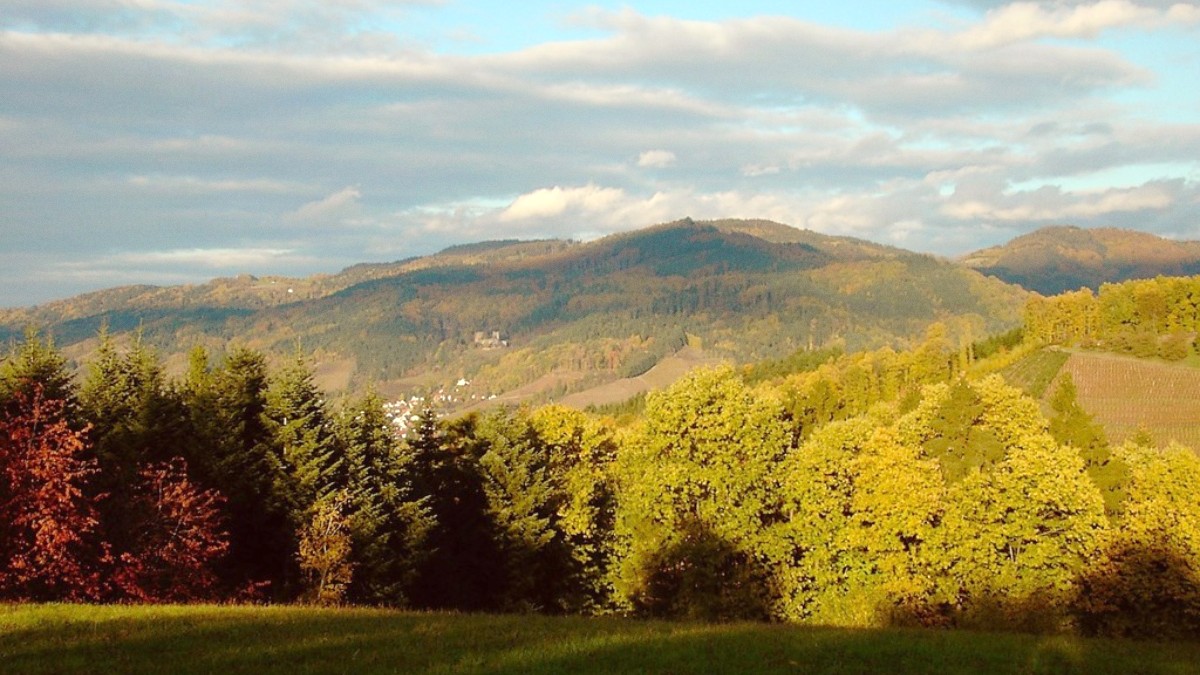
Black Forest, Germany
This city encourages slowing down, exploring its pedestrianized streets, and discovering its many facets. Wander through a bustling market on the Minster Square, climb a towering cathedral for panoramic views, or find peace in a quiet courtyard. Beyond the city’s heart, adventure awaits in the surrounding nature, from gentle strolls through vineyards to invigorating hikes in dense forests.
Freiburg im Breisgau is located in the southwest corner of Germany, in the state of Baden-Württemberg. This position gives the city a distinct geographical identity, influencing its climate, culture, and natural surroundings. To the west, the flat Rhine Valley stretches towards the French border, with the mighty Rhine River flowing north. This valley is part of a larger rift system, giving rise to the region's various landscapes.
The city itself sits at the western edge of the Black Forest, a large forested mountain range. This proximity means the city experiences a mild climate, often warmer than other parts of Germany, with shelter from the mountains to the east. The Black Forest, known for its dense evergreen forests and rolling hills, rises sharply from Freiburg’s eastern edge. This natural barrier presents a stunning backdrop to the city and many opportunities for outdoor activities.
Freiburg’s history spans nearly a millennium, shaping it into the city you see today. Founded in 1120 by the Zähringen dukes, it quickly gained importance as a trading town due to its location at the crossroads of trade routes linking the Mediterranean to the North Sea and the Rhine to the Danube. This strategic position led to its prosperity, visible in the construction of its impressive Minster, which began around 1200. The Minster, with its unique spire completed in the Middle Ages, became a symbol of the city’s ambition and wealth.
Over centuries, Freiburg changed hands multiple times, under Austrian Habsburg rule for a long period, then French, and finally becoming part of the Grand Duchy of Baden. Each period left its mark on the city’s architecture, culture, and legal traditions. The city also saw its university, the Albert-Ludwigs-Universität Freiburg, established in 1457. This institution became a place of learning and intellectual life, drawing scholars and students, contributing to the city's liberal and open-minded character.
Sunny wine-growing regions
Cultural connections
Nearby international hub
Outdoor adventure opportunities
The 20th century brought significant challenges, notably during World War II when much of the city center was destroyed by bombing. However, residents undertook a careful reconstruction effort, painstakingly rebuilding the historic Altstadt (Old Town) to preserve its original charm and layout, including the famous Bächle. This resilience and dedication to heritage allowed Freiburg to retain its unique identity.
Careful reconstruction preserved the Altstadt's original charm and layout, including the Bächle.
Freiburg is recognized internationally for pioneering environmental policies and sustainable urban development.
Freiburg promises a travel experience blending historical discovery, natural beauty, and a glimpse into a sustainable urban future. This combination makes it a memorable and truly unique destination in Germany.
Freiburg offers a concise yet full experience for any traveler. This city quickly reveals its main draws and distinctive qualities. Here is a quick look at what makes Freiburg stand out:
Freiburg has a reputation as a global leader in urban sustainability, with extensive cycling infrastructure, solar energy, and eco-districts.
A large student population from Albert-Ludwigs-Universität gives Freiburg a youthful, liberal, and lively atmosphere.
Access to fine local wines and traditional Badische cuisine. Try authentic Black Forest Gateau.
Freiburg’s compact city center makes it easy to explore on foot. An extensive network of bike paths encourages cycling as a main mode of transport for residents and visitors alike.